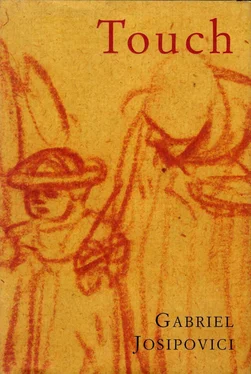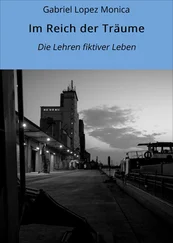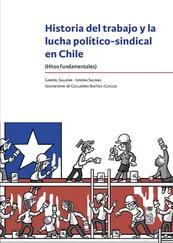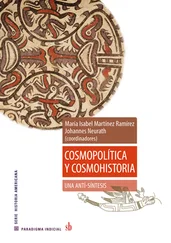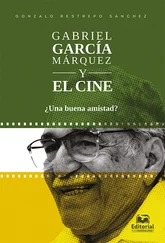Gabriel Josipovici - Touch
Здесь есть возможность читать онлайн «Gabriel Josipovici - Touch» весь текст электронной книги совершенно бесплатно (целиком полную версию без сокращений). В некоторых случаях можно слушать аудио, скачать через торрент в формате fb2 и присутствует краткое содержание. Год выпуска: 1996, ISBN: 1996, Издательство: Yale University Press, Жанр: Современная проза, на английском языке. Описание произведения, (предисловие) а так же отзывы посетителей доступны на портале библиотеки ЛибКат.
- Название:Touch
- Автор:
- Издательство:Yale University Press
- Жанр:
- Год:1996
- ISBN:0300066902
- Рейтинг книги:5 / 5. Голосов: 1
-
Избранное:Добавить в избранное
- Отзывы:
-
Ваша оценка:
- 100
- 1
- 2
- 3
- 4
- 5
Touch: краткое содержание, описание и аннотация
Предлагаем к чтению аннотацию, описание, краткое содержание или предисловие (зависит от того, что написал сам автор книги «Touch»). Если вы не нашли необходимую информацию о книге — напишите в комментариях, мы постараемся отыскать её.
Touch — читать онлайн бесплатно полную книгу (весь текст) целиком
Ниже представлен текст книги, разбитый по страницам. Система сохранения места последней прочитанной страницы, позволяет с удобством читать онлайн бесплатно книгу «Touch», без необходимости каждый раз заново искать на чём Вы остановились. Поставьте закладку, и сможете в любой момент перейти на страницу, на которой закончили чтение.
Интервал:
Закладка:
Yet what film normally withholds from us, that scene in City Lights offers us. For if the girl can now see, and is thus no different from the rest of the characters in the film and from the audience in the darkened room, it is nevertheless her past blindness that is in play here. As she takes the little tramp's hand to press the coins upon him we watch her discover that she already knows that hand, and knows it in a way quite different from the way we, who have been seeing it on screen for an hour or more, can be said to know it. And yet, because we have lived her blindness with her, we too become privy to a discovery being made at a far deeper level than the other transactions on the screen, a discovery that is being made in the secret recesses of her body. Secret of course not because they are hidden from sight (which would suggest that they might one day be revealed), but because it is her body, existing in time, with its own memories and its own life. We discover that, as I have said, not because we can read her face but because we too have bodies and we too know what it is to experience with our bodies rather than merely to see.
The encounter thus gives back, to the girl and to us, that inwardness with the body which the simple experience of witnessing people and events, whether on screen or in real life, denies us. By depicting, for my sight, for once, that which takes place where sight has no jurisdiction, the scene does nothing less than give me back a sense of my own body, not as an object but as that which is alive in space and time.
2 The Lime-Tree Bower and the Virgin of Amiens
Sight is free and sight is irresponsible. I can cast my eye to the far horizon and then back to the fingers I hold up before my face, all in a fraction of a second and with no effort at all. And I can repeat the operation at will. On the other hand, were I to walk to that point on the horizon it would take time and effort, time and effort which I might feel I could better employ doing something else. To look costs me nothing but to go involves both a choice and a cost.
Yet the very decision to walk to that place endows the ensuing walk with a weight which mere looking lacks. A walk will always bring me up against the unexpected: a new view of the place I have just left; a tree I had never seen before; an encounter with a friend; an accident. None of that would have been experienced by me if I had been content to look from the safety of my window. But it is not that experience in itself is necessarily valuable. It is that the letting go of oneself which is involved in any sort of setting out, whether for a three-year journey or a ten-minute walk, is also, mysteriously, a bringing to life of parts of oneself which had previously lain dormant.
The uncanny nature of both photography and film has something to do with the way that both of them reinforce the distinction between sight and bodily experience, yet keep that distinction hidden. ‘Photography maintains the presentness of the world by accepting our absence from it’, Stanley Cavell has written in his perceptive book on film. ‘In viewing a movie’, he remarks a little later, ‘my helplessness is mechanically assured: I am present not at something happening, which I must confirm, but at something which has happened.’
Of course physical displacement is not precisely the issue. Drawing on Cavell's insights we might say that the difference between two kinds of looking lies in our sense of being either present or absent-and-merely-looking. Walter Benjamin coined the term ‘aura’ to describe the first, specifically in the context of his exploration of the nature of film. ‘To perceive the aura of an object we look at’, he writes, ‘means to invest it with the ability to look at us in return.’ This reciprocity, he suggests, depends on our sense of the uniqueness of the moment; aura is ‘the unique phenomenon of a distance, however close it may be. If, while resting on a summer afternoon, you follow with your eyes a mountain range on the horizon or a branch which casts its shadow over you, you experience the aura of those mountains, of that branch.’ Aura does not abolish distance, to adapt a wonderful phrase Benjamin once used about friendship, it brings distance to life. In so doing it pierces us with the sense of the uniqueness, the unrepeatableness, of the occasion. Aura is what envelops an object as we experience wonder not at this or that aspect of it but at the simple fact that it is, and that we, observing it, are. Mechanical reproduction, whether through photography or film, denies and destroys aura. The peculiar charge of that climactic scene in City Lights lies in the momentary appearance of aura in a medium in which aura has no place.
The loss of aura is what Coleridge mourns in his great Dejection Ode:
I see them all so excellently fair,
I see, not feel how beautiful they are!
The loss of aura means the loss of presence: somehow, I am not here to respond to this, even though I can monitor (the technical term seems appropriate) my inability to respond. And the loss of presence means in some sense the loss of the body. We exist but, because we cannot feel, because the world seems no longer to be looking at us, our existence is devoid of meaning and hope. We can go about our daily lives as we have always done, but we might as well be prisoners in solitary confinement.
As it happens, Coleridge wrote another dejection ode, ‘This Lime-Tree Bower My Prison’, which explores all these interconnected themes: how walking brings the body to life, the sense of loss of self which imprisonment produces, and the nature of aura. ‘In the June of 1797’, he writes in the note he placed at the head of the poem,
some long-expected friends paid a visit to the author's cottage; and on the morning of their arrival, he met with an accident, which disabled him from walking during the whole time of their stay. One evening, when they had left him for a few hours, he composed the following lines in the garden-bower.
The ensuing poem is a typical Romantic ode in that it conveys the sense of discoveries being made in the actual course of the writing. Its progress must therefore be followed with some care.
It begins with an elaboration of the sentiment contained in the head-note:
Well, they are gone, and here must I remain,
This lime-tree bower my prison! I have lost
Beauties and feelings, such as would have been
Most sweet to my remembrance even when age
Had dimmed mine eyes to blindness! They, meanwhile,
Friends, whom I never more may meet again,
On springy heath, along the hill-top edge,
Wander in gladness …
As he writes though, and as he imagines them on their walk, he seems to forget his confinement and to be out there with them:
They, meanwhile …
Wander in gladness, and wind down, perchance,
To that still roaring dell, of which I told;
The roaring dell, o'erwooded, narrow, deep,
And only speckled by the mid-day sun;
Where its slim trunk the ash from rock to rock
Flings arching like a bridge; — that branchless ash,
Unsunned and damp, whose few poor yellow leaves
Ne'er tremble in the gale, yet tremble still,
Fanned by the water-fall! and there my friends
Behold the dark green file of long lank weeds,
That all at once (a most fantastic sight!)
Still nod and drip beneath the dripping edge
Of the blue clay-stone.
It is very difficult to know where to stop quoting with these Romantic poems, for firm initial statements (‘they are gone,’ ‘I have lost’) seem to open up and develop into a rhythmic continuum where certain key words act like stepping-stones, leading one ever forward. As Donald Davie says of this passage:
When the poet thought all had been said, it turned out that nothing had been said; in calling to mind the pleasures he cannot share, his imagination permits him to share them. This refers back to the paradox which gives the poem its title. How can a bower of lime-trees be a prison? And, even as he begins to show how this can be, he proves that it cannot be, since the imagination cannot be imprisoned.
Читать дальшеИнтервал:
Закладка:
Похожие книги на «Touch»
Представляем Вашему вниманию похожие книги на «Touch» списком для выбора. Мы отобрали схожую по названию и смыслу литературу в надежде предоставить читателям больше вариантов отыскать новые, интересные, ещё непрочитанные произведения.
Обсуждение, отзывы о книге «Touch» и просто собственные мнения читателей. Оставьте ваши комментарии, напишите, что Вы думаете о произведении, его смысле или главных героях. Укажите что конкретно понравилось, а что нет, и почему Вы так считаете.
